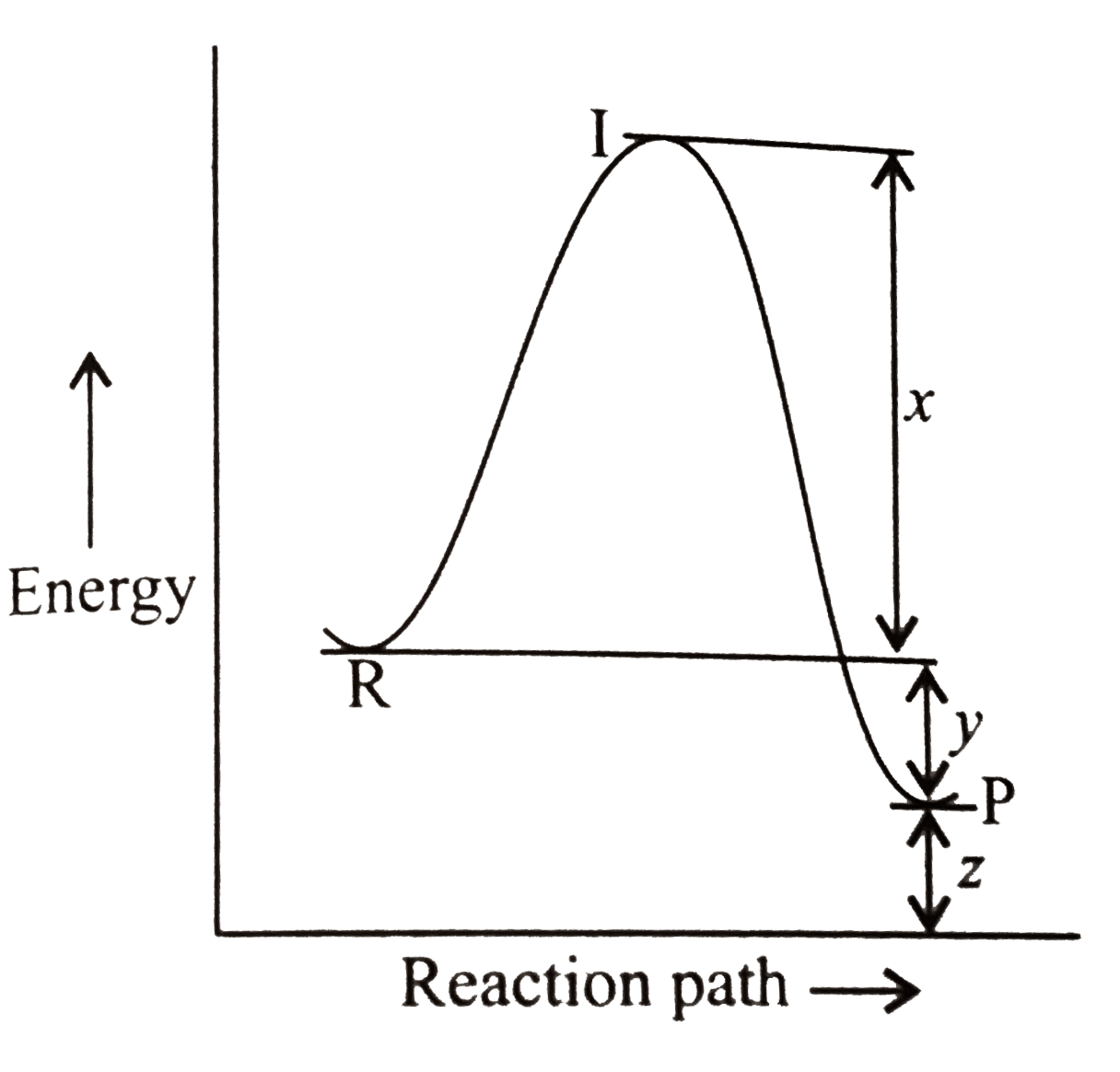In a reaction, the threshold energy is equal to
activation energy + entropy of the reaction
half of activation energy
activation energy - potential energy of the reactants
activation energy + potential energy of the reactants
The correct Answer is:D
The minimum amount of potential energy to be possessed by reacting species to undergo a chemical reaction is called threshold energy while the minimum amount of potential energy to be acquired threugh coolision by two molecules to react is called activation energy.
The value os threshold energy as well as activation energy for a chemical reaction is primaily dependenrt on nature of reacting species.
Topper's Solved these Questions
- CHEMICAL KINETICSBOOK - R SHARMACHAPTER - CHEMICAL KINETICSEXERCISE - Follow-up 6
2 Videos
- CHEMICAL KINETICSBOOK - R SHARMACHAPTER - CHEMICAL KINETICSEXERCISE - Question Bank (Building the knowledge)
53 Videos
- CHEMICAL KINETICSBOOK - R SHARMACHAPTER - CHEMICAL KINETICSEXERCISE - Follow-up 4
20 Videos
- BIOMOLECULESBOOK - R SHARMACHAPTER - BIOMOLECULESEXERCISE - Archives
47 Videos
- CHEMISTRY IN EVERYDAY LIFEBOOK - R SHARMACHAPTER - CHEMISTRY IN EVERYDAY LIFEEXERCISE - Archives
11 Videos
Similar Questions
For a reaction A→B,Ea for the forward reaction Ea(f) and backward reaction Ea(b) is 9kJmol−1 and 9kJmol−1, respectively. Potential energy of A is 12kJmol−1. Calculate
(a) The heat of the reaction
(b) The threshold energy of reaction (THE)
( c) The potential energy of Products (PE)
View Solutionfor a certain reactions, large fractions of molecules has energy more than the threshold energy, yet the rate of reaction is very slow. Why?
View Solution
Knowledge Check
For a reaction, the threshold energy is equal to
AActivation energy + initial potential energy of reactantsBActivation energy - norinal initial potential energy of reactantsCActivation energyDNormal energy of reactants.For a certain reaction a large fraction of molecules has energy more than the threshold energy, still the rate of reaction is very slow. The possible reason for this could be that
Athe colliding molecules could be large in sizeBthe colliding molecules must not be properly oriented for effective collisionsCthe rate of reaction could be independent of the energyDone of the reactant cound be in excess.Assertion : A catalyst lowers the threshold energy level for a reaction
Reason : A catalyst combines with one of the reactans of from an intermediate the follows an alternate path with lesser energy of activation.AIf both assertion and reason are correct and reason is correct explanation for assertion.BIf both assertion and reason are correct but reason is not correct explanation for assertion.CIf assertion is correct but reason is incorrect.DIf assertion and reason both are incorrect.
For a certain reaction large fraction of the molecules has energy more than the threshold energy, yet the rate of the reaction is very slow. Why?
View SolutionFor a certain reaction a large fraction of molecules has energy more than the threshold energy, still the rate of reaction is very slow. The possible reason for this could be that
View SolutionA particle of mass m strikes a stationary nucleus of mass M and activated an endoergic reaction. Show that the threshold kinetic energy required to initiate this reaction is Tth=m+MM|Q|. Where Q is the energy of the reaction.
View SolutionAssertion (A) : Catalyst increases the rate of a reaction
Reason (R) : It lowers the threshold energy of the reaction.
View SolutionThe energy profile diagram for the reaction:
CO(g)+NO2(g)⇔CO2(g)+NO(g) is given below:

The threshold energy of the reaction is
View Solution
